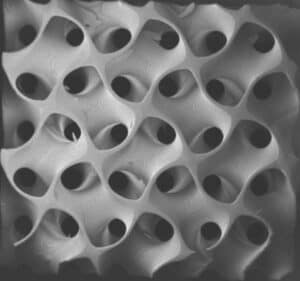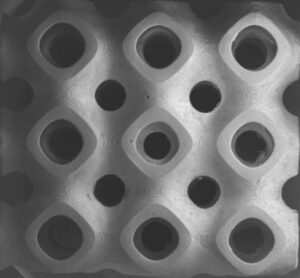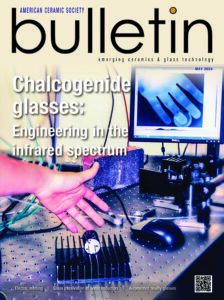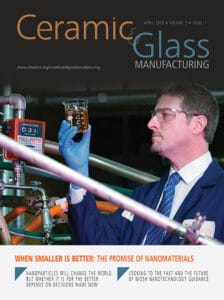
Hala Zreiqat, is a Payne-Scott Professor of biomedical engineering at The University of Sydney. The focus of her lab is on engineering functional synthetic biomaterials for use in regenerative medicine using cutting-edge materials, biological and nano techniques, and novel 3D-printing technologies.
Prof. Zreiqat’s contribution to regenerative medicine and orthopaedic research has led to a number of national and international awards, including being named a Member of the Order of Australia (2019), 2021-2022 Fulbright Senior Scholar; Laureate for the TAKREEM Foundation 2022 “Scientific & Technological Achievement”; the 2018 New South Wales Premier’s Woman of the Year, the King Abdullah II Order of Distinction of the Second Class (2018), Radcliffe Fellow at Harvard University (2016-2017); Eureka Prize winner for Innovative Use of Technology (2019); and University of Sydney Payne-Scott Professorial Distinction (2019). She is also a Fellow of the Australian Academy of Sciences (2021); the Australian Academy of Technology & Engineering (2020), the International Association of Advanced Materials (2022), the Royal Society of New South Wales (2019); Australian Academy of Health and Medical Sciences (2019), and the International Orthopaedic Research Society (2019). She is the past president of the Australian & New Zealand Orthopaedic Research Society. She was the ex-Director of the Australian Research Council Training Centre for Innovative BioEngineering (2017-2022) and a National Health and Medical Research Council Senior Research Fellow (2006-2020). She is the Chair of the Council for Australian-Arab Relations (CAAR) (2022-2026); an Associate of the John A. Paulson School of Engineering and Applied Sciences at Harvard University and an Honorary Professor at Shanghai Jiao Tong University.
Prof. Zreiqat has authored over 180 peer-reviewed publications with over 10,000 citations. Her research in the field of musculoskeletal disorders and biomaterials research has led to four awarded and four provisional patents and more than $20.5M in competitive funding, including major grants from the National Health and Medical Research Council, Australian Research Council and the New South Wales Medical Devices Fund.
As well as her pioneering work in biomaterials development, Prof. Zreiqat is committed to improving opportunities for women and young scientists around the world. She is the founder and Chair of the BIOTech Futures, a science and engineering mentorship program for high school students.
Abstract: Innovations in Nanostructured 3D-Printed Bioceramics for Personalized Bone Healing
The growing clinical need for synthetics that specifically enhance the repair of critical large bone defects and aged bone matched by the escalating demand for grafts, is driven largely by an ageing population whose natural regenerative responses are impaired. This presentation will describe the following: 1) our strategies in developing a platform of patented engineered nanostructured, 3D-printed biomaterials for cell-free personalised treatment to promoting bone healing in load bearing challenging situations. 2) our unique fabrication strategies that will enable customisation of the implant’s shape, size, structure and architecture to meet patient-specific requirements (Fig 1), 3) Identification of the composition of bioceramics that achieves antibacterial effects. Our technologies open avenues for skeletal and soft tissue regeneration in various clinical applications.


Figure 1: SEM micrographs displaying the structure of 3D models and sintered ceramic scaffolds, scale bar = 1 mm.
Subscribe to Ceramic Tech Today

Don’t miss the latest ceramic and glass materials news. Receive the CTT newsletter to your email three times a week by subscribing at this link.
Subscribe to Ceramic & Glass Manufacturing Weekly

Don’t miss the latest ceramic and glass business news. Receive the C&GM Weekly newsletter to your email every Monday by subscribing at this link.


